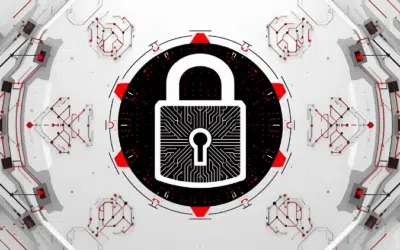Arlington, Texas is a rapidly growing city located in the heart of the Dallas-Fort Worth metropolitan area. With a thriving economy and a growing population, it’s no surprise that the insurance industry has taken notice and established a significant presence in the city. With this growth comes an increased risk of cyberattacks and data breaches, which is why insurance companies need to prioritize cybersecurity measures.
Arlington’s rapid growth and thriving insurance industry make it a prime target for cybercriminals. With sensitive client information and financial data at risk, insurance companies cannot afford to neglect cybersecurity. Not only can a cyber-attack cause a data breach, but it can also result in business interruption, financial losses, and damage to the company’s reputation. Therefore, having a robust cybersecurity plan is essential for Arlington insurance companies to protect themselves, their clients, and their business.
To protect against cyber threats, Arlington insurance companies should implement several best practices. To identify vulnerabilities and gaps in their systems, they should conduct regular security assessments. Following that, they should provide employees with training on recognizing and responding to cyber threats. For the third step, they should use firewalls and endpoint protection to secure their systems and networks. Finally, they should have a robust incident response plan in place to detect, contain, and mitigate the effects of a cyber-attack.
In this blog post, we’ll explore some of the cybersecurity concerns that insurance companies in Arlington should be aware of and offer tips on how to protect their businesses from potential threats.
Why are Insurance Companies Targets of Cyberattacks?
Insurance companies are high-value targets for cyber-attacks because of the vast amounts of sensitive information they hold, including personally identifiable information, financial records, and medical records. This information can be used for identity theft, fraud, and other malicious activities. In addition, insurance companies are often seen as soft targets due to their lack of investment in cybersecurity compared to other industries, such as financial services.
The sensitive information stored by insurance companies also makes them attractive targets for ransomware attacks, where hackers encrypt the data and demand a ransom for its release. A successful attack on an insurance company can result in significant financial losses and damage to its reputation, making it a tempting target for cyber criminals.
Cybersecurity Concerns for Arlington Insurance Companies
So exactly what types of cyber threats should Arlington insurance companies be on the lookout for? While any attack has the potential to lead to catastrophe, our experience is that a few more common attack types and threat vectors require extra attention. As an aside, protecting against the threats listed below has the positive effect of protecting against other, less-common attacks.
Pay attention to implementing a security posture to protect your insurance business from the following cyberattack types:
Phishing Attacks
Phishing is when an attacker sends an email or message that appears to be from a legitimate source but is designed to steal sensitive information. Insurance companies in Arlington should be aware of this threat and take measures to protect themselves. This includes implementing spam filters and providing employee training on how to identify and avoid phishing attacks.
Ransomware Attacks
Ransomware attacks are another significant cybersecurity concern for insurance companies. Ransomware is a type of malware that encrypts a victim’s files and demands a ransom payment to restore access. Insurance companies may be especially vulnerable to ransomware attacks due to the sensitive nature of the data they handle. To protect against ransomware, companies should have a robust backup system in place and regularly test their backup data to ensure it is effective.
Insider Threats
Insider threats are a significant concern for businesses in all industries, including insurance. Insider threats can be caused by employees, contractors, or other insiders who have access to sensitive data. To mitigate the risk of insider threats, insurance companies in Arlington should implement strict access controls and monitoring systems. They should also provide regular training to employees on how to identify and report suspicious activity.
Social Engineering
Social engineering attacks are another type of cybercrime that insurance companies should be aware of. Social engineering is when an attacker manipulates a victim into divulging sensitive information. Social engineering attacks can take many forms, including impersonating a trusted source, offering a fake service or prize, or using a sense of urgency to pressure the victim. To protect against social engineering attacks, insurance companies should implement strict policies around data sharing and employee training on how to identify and avoid these types of attacks.
Good Security is Good for Business
The reality is that any business can be attacked at any time if it attracts the wrong attention from the wrong person or group. What matters is having security in place that thwarts the attack or, at a minimum, mitigates the potential damage in the event the attack is successful.
While there is no one-size-fits-all cure for cybersecurity concerns, an awareness of the attack types above and the best practices necessary for protecting your insurance company will go a long way in minimizing any potential damage.
Many insurance companies find that a technology partner is great idea when it comes to securing their most important data and devices. If your organization is interested in focusing on strategic initiatives and would rather leave security to the experts, contact our team at Axxys Technologies. With years of experience and expertise in the cybersecurity realm, we’ve been helping north Texas businesses stay safe for years. Contact us today if your cybersecurity posture could use an extra set of expert hands.








